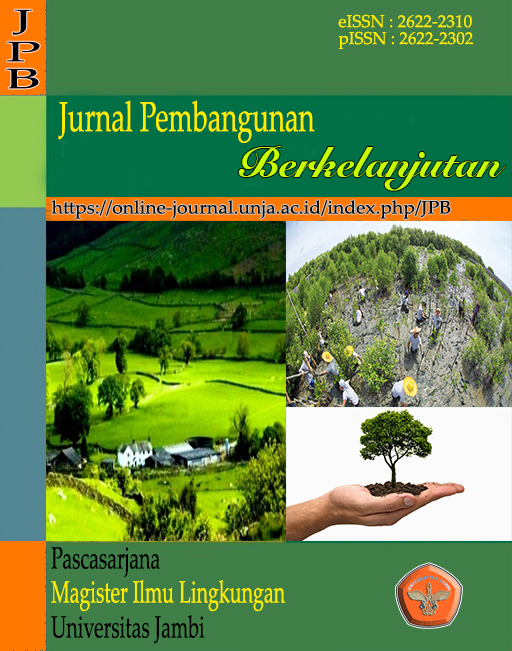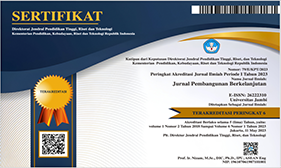Pengaruh Pemberdayaan Masyarakat Terhadap Kualitas Lingkungan Di Sekitar Areal Hutan Tanaman Industri
DOI:
https://doi.org/10.22437/jpb.v5i1.18625Keywords:
Community Empowerment,, Environmental Quality,, Forest and Land Fires,, Industrial Plantation Forest.Abstract
The high number of forest and land fires that occur every year can damage the quality of the environment. Serious and continuous efforts are needed to reduce, prevent and control forest and land fires that occur. It is important to do this so that the number of forest and peatland fires caused by humans can be suppressed. One of the efforts that can be done is through community empowerment programs. This study aims to analyze the business and the role and influence of community empowerment on the quality of the environment around the PT Wirakarya Sakti Industrial Plantation Forest Area. This study uses a mixed method approach by combining quantitative research and qualitative research. Based on the results of data analysis, it is known that the environmental quality, including the air quality index, is in the good category (IKU=32,4), the water quality index is good (IKA=0.989) and the soil quality index is in the bad category (IKT=33,5). In addition, it is known that the level of community understanding of forest and peatland knowledge is in the medium category (65.3%), community understanding of forest and land fires is in the medium category (67.1%) and community understanding of community empowerment is in the high (78.2%). The results of the regression analysis prove that the significance value obtained is 0.389>0.05, meaning that community empowerment has no significant effect on environmental quality in the area around industrial plants.
Downloads
Downloads
Published
How to Cite
Issue
Section
License
Copyright (c) 2022 Jurnal Pembangunan Berkelanjutan

This work is licensed under a Creative Commons Attribution 4.0 International License.
1. Authors retain copyright and grant the journal right of first publication with the work simultaneously licensed under a Creative Commons Attribution 4.0 International License that allows others to share the work with an acknowledgement of the work's authorship and initial publication in this journal.
2. Authors are able to enter into separate, additional contractual arrangements for the non-exclusive distribution of the journal's published version of the work (e.g., post it to an institutional repository or publish it in a book), with an acknowledgement of its initial publication in this journal.
3. Authors are permitted and encouraged to post their work online (e.g., in institutional repositories or on their website) prior to and during the submission process, as it can lead to productive exchanges, as well as earlier and greater citation of published work (The Effect of Open Access)











